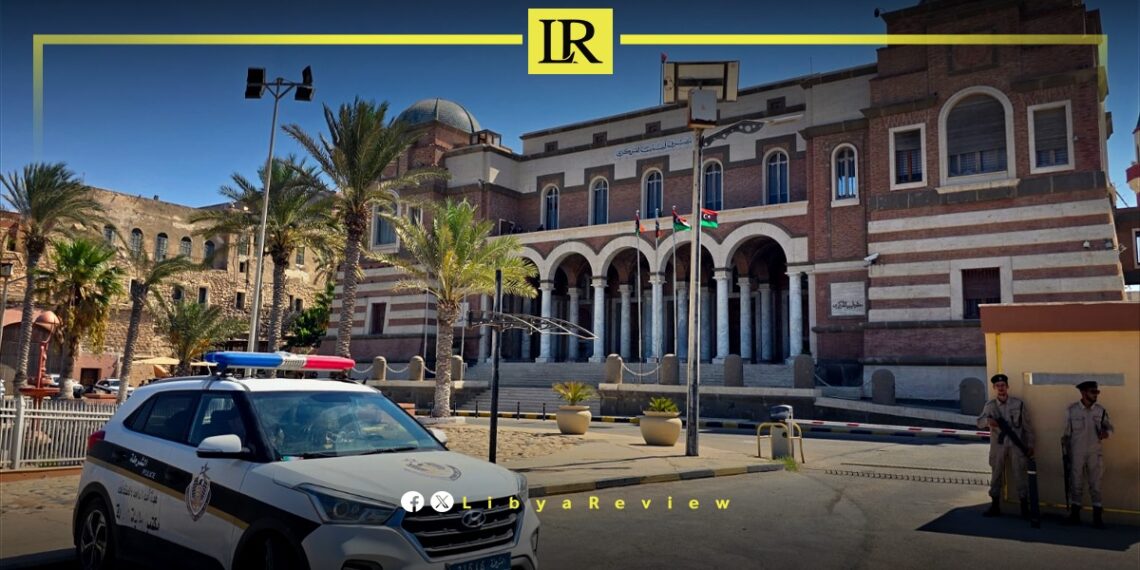Members of the United Nations Security Council have expressed deep concern over the recent developments and escalating tensions in Libya.
They urged Libyan actors and institutions to urgently refrain from any unilateral actions that could increase tensions, undermine trust, and deepen institutional divisions among Libyans.
In a statement, the Council called on all Libyan leaders, as well as political, economic, and security institutions, to de-escalate tensions. They stressed the need to avoid the use of force, the threat of force, or any economic measures intended to exert pressure. The Council emphasised the importance of finding a consensus-based solution to the ongoing crisis surrounding the Central Bank of Libya.
The Security Council also urged Libyan parties to refrain from any military actions that could jeopardise the fragile stability of Libya, endanger civilians, or threaten the 2020 ceasefire agreement. They highlighted the importance of accountability.
The Council reminded all Libyan political leaders and institutions of their obligations and commitments in line with relevant Security Council resolutions, particularly Resolution 2702 (2023). This resolution is based on the Libyan Political Agreement, the roadmap of the Libyan Political Dialogue Forum, and the updated electoral laws approved by the 6+6 Committee.
The Security Council called on all Libyan parties to fully engage, in good faith and without preconditions, in the Libyan-led political process facilitated by the United Nations, in line with Resolution 2702 (2023).
The members expressed their full support for the United Nations Support Mission in Libya (UNSMIL) to continue its mandate, including efforts to de-escalate tensions, maintain stability, and build trust among key stakeholders. They also supported the appointment of a new Special Representative of the Secretary-General for Libya as soon as possible.
The Council stressed the importance of ensuring the full, equal, effective, reasonable, and safe participation of women, youth, and civil society representatives in all activities and decision-making related to Libya’s democratic transition. They reaffirmed their strong support for Libya’s sovereignty, independence, territorial integrity, and national unity.
This statement follows an announcement by UNSMIL of its intention to hold an “emergency” meeting on Monday night to resolve the Central Bank crisis, which has led to political tensions and a halt in oil production and exports by eastern authorities.
The eastern authorities had declared force majeure on all oil fields and ports, suspending oil production and exports until further notice. This was in response to the internationally recognised government in Tripoli taking control of the Central Bank headquarters, replacing Governor Sadiq Al-Kabir.
UNSMIL expressed deep regret over the situation, warning that adherence to unilateral decisions could lead to financial and economic collapse in Libya. The mission called on all political parties to suspend all unilateral decisions related to the Central Bank, lift the force majeure on oil fields, and ensure the safety of Central Bank employees, protecting them from threats and arbitrary arrests.
The United States has endorsed the UNSMIL initiative, with the US Embassy in Tripoli urging all parties to seize this opportunity after tensions undermined confidence in Libya’s economic and financial stability. The embassy also expressed concern over the “intimidation” of Central Bank employees, calling for strict accountability of those responsible.
The Central Bank of Libya oversees the management of oil revenues and the state budget, which are then redistributed across different regions, including the east. Thanks to a recent period of calm, oil production had increased to approximately 1.2 million barrels per day.
Al-Siddiq Al-Kabir has served as Central Bank Governor since 2012 and has faced repeated criticism over his management of Libya’s oil revenues and state budget, including from figures close to Prime Minister Abdel-Hamid Dbaiba. The Central Bank Governor enjoys the confidence of the House of Representatives, which recently reaffirmed its support, arguing that the Tripoli-based Presidential Council lacks the authority to appoint or dismiss the Governor.


